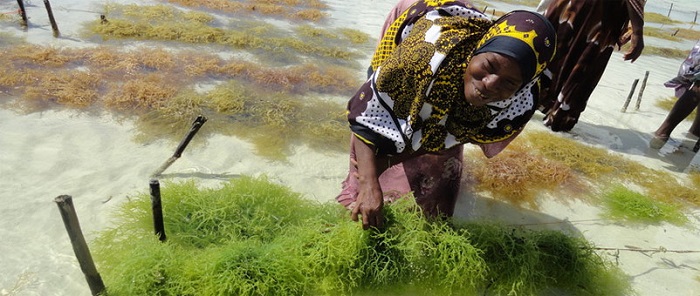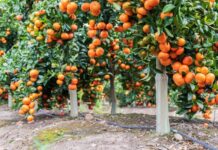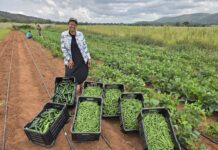The state-owned Zanzibar Seaweed Company (ZASCO) over the weekend signed a memorandum of understanding (MoU) with Tanzania’s NMB Bank in a move that is aimed at unlocking the full potential of seaweed farming in the island.
Dr. Masoud Rashid Mohammed, Director General of ZASCO, said that the timing of the MoU is opportune as the company is currently implementing strategies to enhance value addition in seaweed farming.
“We anticipate that this MoU will have a significant impact. We are committed to ensuring the timely implementation of all the stipulated terms,” said Mohammed.
He said that his company has initiated the construction of an 8.0 billion Tanzanian Shillings seaweed processing facility in Zanzibar. This plant aims to process all seaweed before export, thereby enabling farmers to obtain better prices in the global market.
“This will become not only the largest seaweed processing plant in Tanzania but also across the entire African continent.”
Speaking during the signing of the MoU, Mr Filbert Mponzi, NMB Chief Retail Banking said that the move is in line with the bank’s ambitious strategy to promote sustainable economic development in Zanzibar.
“This MoU underscores our dedication to bolstering Zanzibar’s Blue Economy agenda. Our primary focus will involve enhancing the productivity of smallholder seaweed farmers in Zanzibar through the provision of customized banking solutions, financial education, and technical training directly at the grassroots level,” said Mponzi.
NMB, a prominent bank in the nation, has been actively championing support for Zanzibar’s Blue Economy agenda. It’s noted that the recently signed MoU with ZASCO will not only facilitate value addition but also bolster the foreign exchange earnings of the islands.
During the event, Mr. Omar Said Shabani, the Minister of Trade and Industrial Development in Zanzibar, expressed confidence that seaweed is on track to surpass cloves as the primary foreign exchange earner for Zanzibar within the coming years.
“The global market value of seaweed exceeds that of cloves. With significant investment, particularly in seaweed value addition, Zanzibar will be better positioned to earn more foreign exchange,” said Omar.
Recent statistics indicate that Zanzibar produces 23,000 tonnes of seaweed annually, with women constituting 90 percent of the outgrowers.








